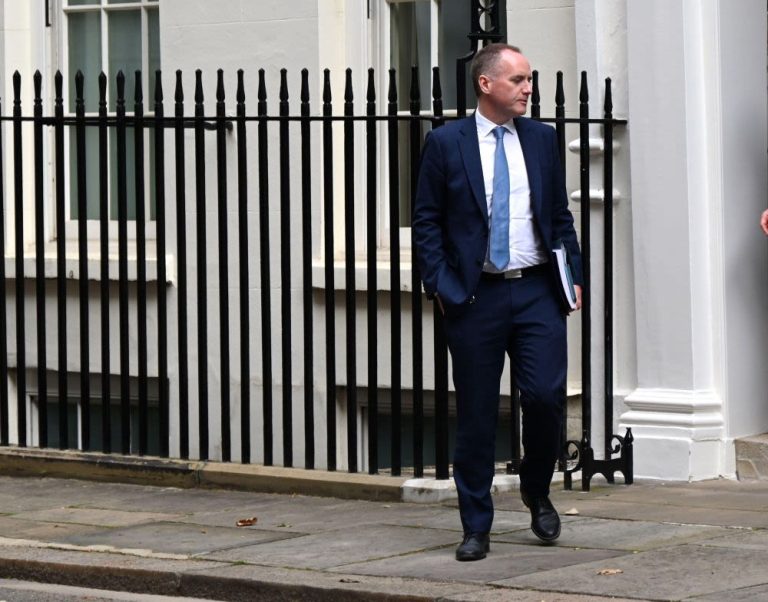
As geopolitical tensions mount across Europe, Britain’s newly appointed Space Commander has issued a stark warning: the next conflict may begin far above our heads. Major General Paul Tedman, who took command of UK Space Command last year, told The House that it is “highly likely” the first assault on British soil will occur in space. His remarks underscore the urgent need for the UK to bolster its space defenses before any terrestrial battle unfolds.
Europe’s Emerging Space Threat
With Russia’s military posture increasingly aggressive and the prospect of a wider European war looming, space assets have become a prime target. Just as cyberattacks and missile strikes can cripple infrastructure on Earth, hostile actors can disable satellites that underpin communications, navigation, intelligence gathering and precision weaponry. According to Major General Tedman, an adversary aiming to blind Britain would strike satellites first, disrupting GPS signals, satellite communications and reconnaissance capabilities.
RAF High Wycombe: A Hidden Village Turned Space Hub
UK Space Command is headquartered at RAF High Wycombe, a base originally camouflaged as an English village to evade Luftwaffe detection during the Second World War. Today, the same low-profile design shields a cutting-edge command and control center, where officers monitor threats to British satellites and coordinate responses across the Ministry of Defence and allied forces. During his first in-depth interview since assuming command, Major General Tedman demonstrated how the National Space Operations Centre tracks orbital objects and identifies potential hazards.
Closing the Capability Gap
Despite the critical importance of space, the UK currently allocates only around 1% of its defence budget to space capabilities, placing it near the bottom of G20 nations. By contrast:
- France dedicates approximately 3% of its defence spending to space;
- The United States allocates around 5%;
- Even emerging powers view space as a strategic domain.
Tedman insists that the UK must not only increase funding but also prioritize high-impact projects: “It’s more important to focus investment on our most urgent requirements than to simply raise the overall budget.” He identifies counter-space defenses—systems capable of deterring or intercepting hostile satellites—as an area of critical need. Without credible deterrence, Britain risks ceding control of essential space-based services.
From Tyche to Tomorrow’s Satellites
The UK entered the space surveillance arena with its first spy satellite, Tyche, launched only last year. Though a landmark achievement, Tyche’s capabilities are dwarfed by the scale of threats posed by more advanced adversaries. Meanwhile, Russia’s recent deployment of a nuclear-capable anti-satellite weapon demonstrates how quickly the space environment can become militarized. UK Space Command must therefore accelerate development of resilient satellite architectures, cyber-defenses and debris-removal technologies to ensure long-term operational freedom in orbit.
Strengthening Alliances and Partnerships
Major General Tedman emphasizes that the UK will not face future space conflicts alone. Space Command works closely with NATO allies, the United States Space Force, and commercial partners such as Lockheed Martin and Airbus. However, industry leaders warn that a lack of coherent government strategy creates confusion in the private sector. In response, ministers have launched an inter-departmental effort to harmonize procurement, regulation and research across Whitehall. “This cross-government coherence is a good start,” says Tedman, noting that ministers Chris Bryant and Maria Eagle have actively engaged with Space Command’s priorities.
Preparing for the Unthinkable
The recent Strategic Defence Review elevated space to parity with air, land and maritime domains, but implementation will take time. Tedman admits that if conflict erupted tomorrow, current UK capabilities might not suffice against a sophisticated space attack. “Securing the space domain is a prerequisite for preserving our freedom of manoeuvre across all other theatres,” he warns. Investing in rapid satellite deployment, space domain awareness and counter-space systems must remain top priorities to deter potential aggressors.
While the public may struggle to grasp the importance of space defense—unlike a visible tank or fighter jet—Major General Tedman is determined to raise awareness. As Europe prepares for war, Britain’s ability to control the heavens could determine whether future assaults strike satellites high above or targets on the ground.





